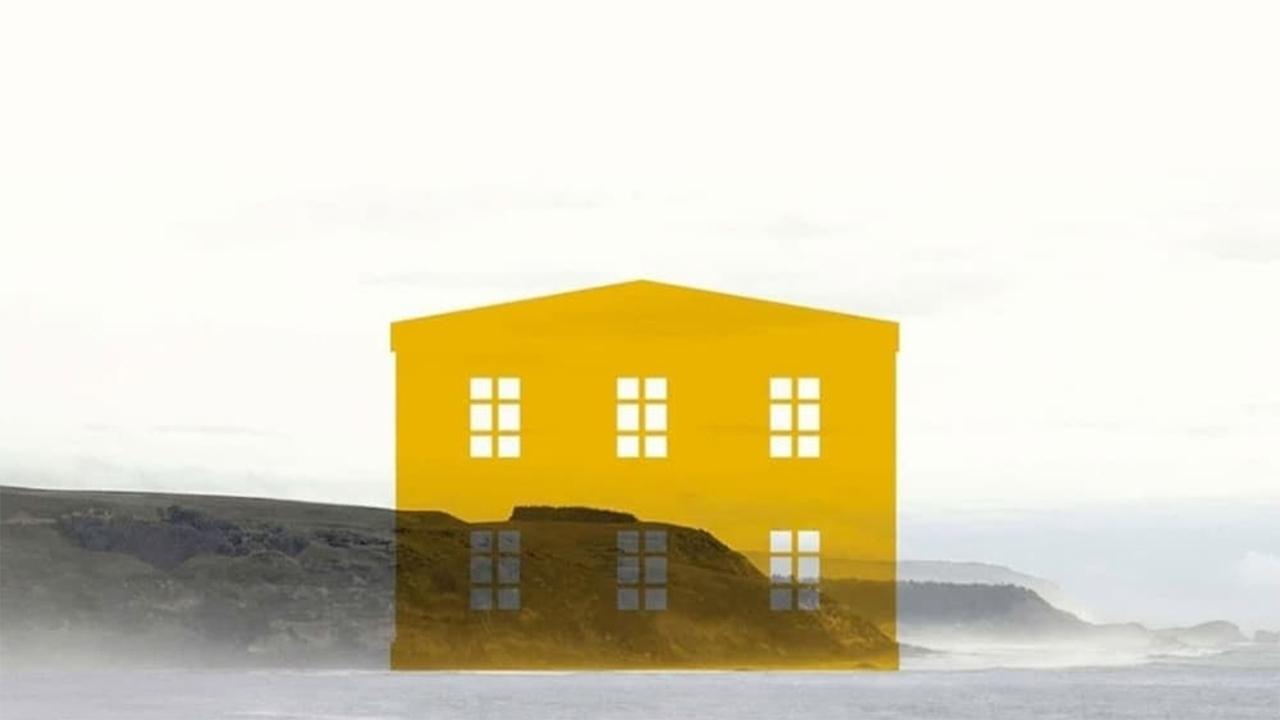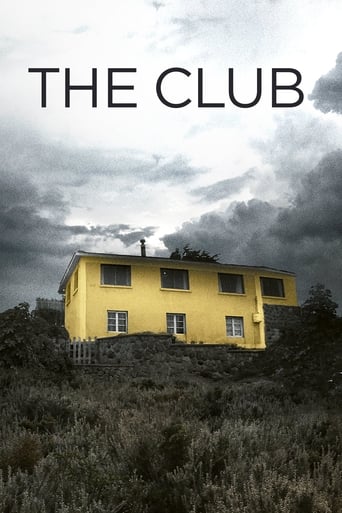

This is a film from Pablo Larrain who brought us 'Tony Manero' and 'No', and is an excellent film maker. This is about a sort of retirement home for bad Priests on the coast of Chile. There four priests and one fallen nun get to live out their days away from where they can do harm to their erstwhile flocks. The crimes range from sexual abuse of children to child stealing from unmarried mothers. Then after a new incident a crisis counsellor turns up with Vatican credentials.His job is to find out what has really taken place and see if these people are still worth the efforts of the Mother Church.Now this is a cold film, it is also very bleak at times with many references to sexual abuses and so can be difficult in places. However, it is also powerful and does not set out to wholly condemn anyone. Everyone gets to have their say and all angles seem to be covered which makes the whole thing more real.It is also a film that has a sense of doom and an urgency that makes you want to carry on watching it. I am a fan of Pablo Larrain and this film has only encouraged me in that endeavour – recommended.
... View MoreThe Club is about of group of former male priests who have been sent to live in a house for supposedly being incapable of properly ministering, when something horrible happens outside their house and a young priest-psychiatrist joins them in the hopes of finding out what's going on, and putting the former priests back on the right track. The movie has so many twists and turns, it's probably better that you don't know much more about it. And that's something that I loved. It's unpredictable, and the movie just goes along without over dramatizing much, thus making it just a little more real. Right from the get-go, this is a beautifully shot movie. Every scene is gorgeous, and the gloomy color pallet really helps set the tone. Even the coloring of the house sets the mood incredibly well, and allows an atmosphere of dark sadness to settle over the entire film. The acting is all pretty good. The characters are convincing as characters, and they react in ways that I think a lot of people would in their situation. This is often due to the writing, which is also great. The dialogue is intriguing and pulls the story along with nice pacing. The movie is pretty slow to start. When the dog races are first introduced, I thought it'd be about dog racers and lost interest. However, I'm happy I stuck with it because it gets better. Much better. Despite how well-made and unpredictable the movie is, I found myself somewhat distant from it emotionally. Scenes that should have shocked or made me tear up had little effect. While it captured discomfort perfectly, it didn't quite capture other emotions. Overall The Club is great. The acting, writing, shots, and story are all very engaging, all with a little too much discomfort. It lacks emotional investment and intrigue right off the bat, but it gets better. In the end I would definitely recommend this movie.
... View MoreFour disgraced Catholic priests and a mysterious nun live together in a house situated in a remote seaside town. Each must atone for sins of the past. Collectively they comprise the "The Club".And they don't take kindly to guests.Chilean Director Pablo Larraín (who also shares writing and producing credit) does masterful work here creating an unremittingly dreary and dour atmosphere right from the opening frame. Even those scenes where the sun is shining feel decidedly dim in his film.And the overarching tone befits the performances. This is fine ensemble work from the aforementioned five principle characters. The supporting cast is equally as impressive. Together these actors deliver a common thread of acute despondency and resignation to the dire circumstances which have come to consume and define their dismal lives.It would be an exercise in easy to dismiss, or at the very least, minimize, "The Club" as a portrait of punishing depression and abject absolution. But I will submit that it is more than merely such uncomplicated characterization.Larraín pulls nary a punch in his raw and unsettling condemnation of an omnipotent organization which has continued to figuratively turn it's head in the face of evil transgression rather than face the sordid depravity head on and work to root out and vanquish it.The final moments of "The Club" brings the notion of "The New Church" and the suggestion that there is perhaps systemic change afoot in institutional Catholicism. These scenes also introduce a new boarder into the house in the person of a severely scarred victim of that which has been allowed to permeate in perpetuity and practically without punity.But what we can not know, and what Larraín clearly leaves ambiguous by intent, is this: Will "The Club" welcome their new tenant in a spirit of repentance and forgiveness? Or will they treat this interloper as they have all other unwelcome invasions of their duplicitous commune? We can only hope for the former. Still, there is little expectation that our wish will be fulfilled. For by now we have come to learn in no uncertain terms that this is a congregation whose service is certainly not in the name of God. But rather in the shame of."The Club" is not at all pleasant to watch. It is alarmingly disturbing, spiritually jarring and leaves you adrift in a wake of lingering despair. This is not to say that it is a bad film. For it is not. It is to maintain, nonetheless, that it is a film about bad people violating all that is sacred about the human condition. Particularly by those who have vowed to operate in a manner mirroring that of divinity much more so than mortality.
... View MorePablo Larraín's "El club" (2015) is a well-made film, but in the end it seems like a crowd pleaser for culture-freak cinéphiles. Not only did I find the subject a little trite (effects of sexual abuse of boys by priests) and gruesome, for all the situations that I witnessed that were truer, and sometimes as excessive and pathetic as the case shown here, during the 12 years I spent in a school ruled by Augustinian Recollects; but I also found there is a lack of compassion in its treatment of behaviors and the story, and a bit sensationalism and rudeness without necessity, when in cases like this of all sexual orientations, the most adequate keyword seems to be compassion. But in the end everybody has the right to make personal interpretations of such matters, although I still insist that there are too many stereotyped traits in the exposition of the victim and the victimizers. I do not know if what we see are consequences of Augusto Pinochet's dictatorial regime, but there is something crudely realistic, in morbid and sordid ways, in the characters and situations of the four films by Larraín that I have seen, in which we do not perceive the (also clichéd, if you will) joy of living that we all need to go on. And it's one film after the other, in which -- in spite of the masterful execution-- when they end, one would rather be dead and gone!
... View More